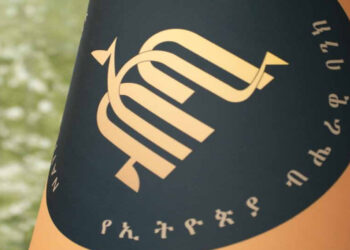Ethiopia is at a pivotal moment in its economic development, with digitalization emerging as a critical driver for inclusive growth and transformation. As the country works to diversify its economic activities and foster equitable benefits distribution, mobile telecommunications and mobile money services have become central to this vision. A recent report by GSMA titled “Driving Digital Transformation of the Economy in Ethiopia: Opportunities, Policy Reforms, and the Role of Mobile” highlights the profound impact that mobile technologies can have on accelerating Ethiopia’s economic progress across various sectors.
Mobile Connectivity: The Backbone of Digital Transformation
Mobile connectivity has seen remarkable progress in Ethiopia over the past decade. According to GSMA, 98% of the population is now covered by 3G networks, while 4G coverage stands at 33% as of 2023. This expansion in mobile internet access is integral to Ethiopia’s goal of achieving lower-middle-income country status by 2025.
In line with its 10-year economic plan, the Ethiopian government aims to increase gross domestic revenue from ETB 395 billion to ETB 3.9 trillion by 2030, primarily through reforms in tax policy, modernizing the tax system, and advancing digitalization. Mobile telecommunications is playing a vital role in these reforms, driving innovation, productivity, and access to services in both urban and rural areas.
The Impact of Digitalization Across Key Sectors
GSMA’s research emphasizes the far-reaching effects of digital transformation across multiple sectors. The adoption of mobile technology is projected to bring substantial economic value additions by 2028:
- Agriculture: The sector is the backbone of Ethiopia’s economy, and digital technologies are revolutionizing farming practices. GSMA estimates that increased mobile penetration could add ETB 134 billion to agricultural output by 2028, contributing 3.1% to the sector’s total value add.
- Industry: Mobile-enabled industrial growth is expected to contribute ETB 108 billion to the industry sector by 2028, accounting for 3.7% of the total value add. As mobile access expands to an additional 30 million people, it will empower industrial productivity and innovation.
- Transport: Digital solutions, including mobile-based logistics and transport management systems, could boost the transport sector by ETB 24 billion, equivalent to 4.6% of its total value add by 2028.
- Trade: With the increasing adoption of mobile platforms for e-commerce, payments, and supply chain management, the trade sector could see a value addition of ETB 27 billion, representing 1.5% of the sector’s total contribution to the economy.
- Healthcare: Digital health services, such as telemedicine and electronic health records, have the potential to add ETB 4.4 billion to healthcare value add, contributing 5.5% of the subsector’s total value by 2028.
- Government Services: The adoption of digital government services could lead to better efficiency and transparency. According to GSMA, digitalization in the public sector could generate an additional ETB 22 billion in tax revenue by 2028.
Ethiopia’s Mobile Market: Progress and Challenges
Ethiopia’s mobile market has experienced significant changes since the liberalization of the telecommunications sector in 2019. As of 2024, Ethio Telecom holds a 94.5% market share, while Safaricom Ethiopia has established itself with a 5.5% share. The growing competition is driving innovations and improving service offerings for millions of Ethiopians.
Mobile internet usage has expanded significantly, with over 40 million people connected to 3G or higher networks by 2023. However, GSMA’s report identifies key challenges that continue to hinder widespread mobile adoption, namely affordability and digital literacy. Although mobile data prices have decreased by 70% between 2017 and the first half of 2023, further efforts are needed to make mobile services accessible to all.
Mobile Money: Transforming Financial Inclusion
One of the standout successes of Ethiopia’s digitalization journey is the rapid growth of mobile money. By June 2023, the number of mobile money accounts in the country had reached 69 million, with a penetration rate of over 50%. The value of mobile money transactions stood at ETB 380 billion, showcasing the potential of mobile financial services to transform the economy.
GSMA projects that mobile money could increase Ethiopia’s real GDP by USD 5.3 billion by 2030. This growth underscores the importance of continuing to expand financial services to underserved populations and creating an enabling regulatory environment to support the mobile money ecosystem.
Policy Recommendations for Supporting Digital Transformation
To fully realize the potential of Ethiopia’s digital transformation, GSMA outlines a series of policy recommendations that focus on accelerating mobile adoption, improving digital access, and ensuring sustained investment in the sector:
- Telecom Reform Implementation: It is crucial for the government to ensure the timely execution of the Communications Service Proclamation and related directives. Fair competition, regulatory transparency, and timely reforms will drive investment in the sector.
- Industry Sustainability and Investment Incentives: Encouraging investment in mobile infrastructure is key to sustaining digital growth. GSMA recommends reducing costs on mobile devices, offering investment incentives, and promoting innovative financing solutions.
- Affordable Licensing and Spectrum Fees: To attract investment and reduce costs for end-users, GSMA advocates for affordable and predictable licensing and spectrum fees. This will enable mobile operators to expand their networks and offer affordable services.
- Regulatory Support for Mobile Money: The government should continue to support the growth of mobile money services by increasing account limits, discouraging over-taxation, and enabling the continued innovation of mobile financial products.
- Demand-Side Policies: Investments in digital literacy programs, digital ID systems, and affordability initiatives are critical to expanding mobile usage, particularly in underserved regions.
Projected Growth from Policy Implementation
GSMA’s modeling highlights that, if these policy reforms are implemented, Ethiopia could see a 26% increase in mobile internet adoption by 2028, resulting in 30 million new users compared to the base case scenario. This would mean 69% more people will be using mobile internet in 2028 than in 2023, significantly boosting digital inclusion and economic participation.
Digitalization as a Catalyst for Ethiopia’s Future
GSMA’s research underscores the immense potential of Ethiopia’s digital transformation. By leveraging mobile technologies and implementing effective policy reforms, Ethiopia is positioned to achieve its economic goals under the Homegrown Economic Reform (HGER) agenda. The mobile and digital sectors can serve as catalysts for growth, empowering sectors like agriculture, industry, healthcare, and government services, and ensuring that Ethiopia’s future is more inclusive, connected, and prosperous.
Through continued investment, innovation, and regulatory support, Ethiopia’s digital revolution can drive lasting economic transformation, unlocking opportunities for millions and ensuring a brighter future for all.
Get the full report here: GSMA_Ethiopia-Report_Oct-2024_v2.pdf




















